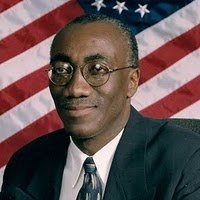FOX and ABC found themselves in the Supreme Court last week defending against FCC charges of profanity and obscenity on the air. This issue has come up, in large part, because of the broadcast of the 2004 Super Bowl, incident during which Justin Timberlake exposed Janet Jackson’s breast for a split second during their halftime show. The event that came to be known as “Nipple gate.” The law was changed to increase the fines for the utterance of profanity tenfold, from $32,000 to $320,000 for a single instance of indecent speech…which means that the fine for a single expletive during a broadcast could run into the millions.
The Supreme Court has been asked to weigh the constitutionality of the FCC punishing bad language and nudity on broadcast TV. Fox is involved because of awards shows on which Cher and Nicole Richie spewed the F bomb. ABC is challenging a fine over an "NYPD Blue" episode in which a young boy sees a woman's “backside”. They've been fighting over this for almost a decade.
In the United States, unlike some countries where government owns all broadcasting TV and radio stations, TV and radio stations are privately owned. But the Electromagnetic spectrum has limited capacity, so the FCC assigns frequencies to stations and issues them licenses. A license does not mean that broadcasters own the frequency; they have the privilege of using it only temporarily. The government owns the spectrum and the courts have said that the FCC can impose certain conditions on broadcasters.
For the networks, this is no laughing matter. ABC was fined for several instances when the word “bullshit” was uttered in an episode of NYPD Blue, and CBS was fined because a guest used the word “bullshiter” to describe a contestant on Survivor. The problem is that some of the comments were unscripted so the networks had no opportunity to clean up the language.
To make matters even more complicated, the words were just fleeting expletives. When Cher in her acceptance speech at the Billboard Music Awards said: “People have been telling me I’m on the way out right? So f… em”. The network was found guilty of indecency. And remember Nicole Riche at the 2003 Billboard Awards, she made an unscripted remark that put the net work in hot water: “Have you ever tried to get cow shit out of a Prada purse?” she asked, “It’s not so f…… simple”
The world has changed. We now face a media landscape that we could not have imagined back when cable hit the market. In 1978 the internet was still run by the Defense Department with a few hundred users. Face book, U tube and Twitter did not exist. Today Cable is almost as popular as network TV, if not more so. Every TV sold in the U.S. has a V chip which allows parents to block programs. And there are scores of other devices that can be used to keep forbidden content from children. Even a simply password can keep kids away from adult content.
... "What the government is asking for, is a few channels where you can say ... they are not going to hear the s-word, the f-word. They are not going to see nudity." Said Justice Roberts. The short answer is, use the V chip and other technology. Most Americans don’t find “dick’ “dickhead” “pissed off” and “smart ass” to be offensive. The FCC is overreaching when it imposes $million fines or threatens to lift a broadcaster’s license because these words are uttered in the course of a broadcast.

